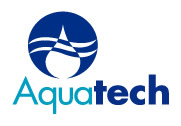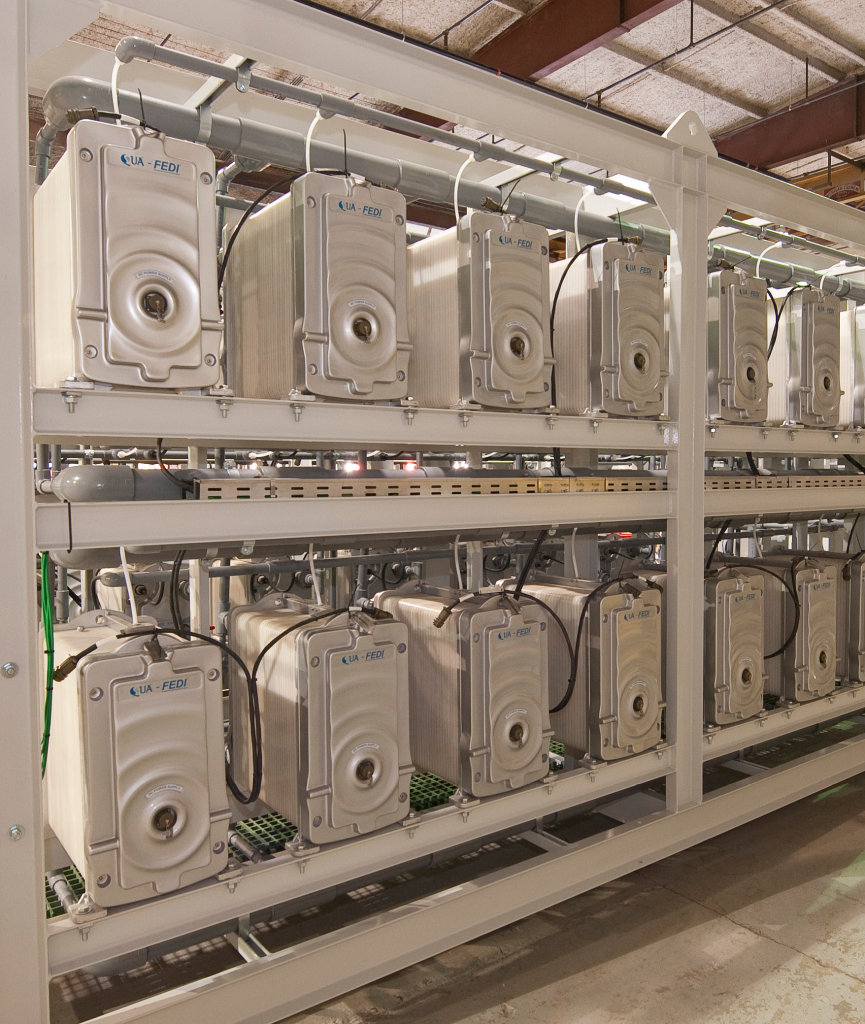Overview
Brazos Electric Cooperative Power Plant in Cleburne, TX is a nominal 258 MW combined cycle gas fired power plant operating on AGC (Automatic Generation Control) load requirements. The plant uses approximately 54 million gallons of water per year for boiler feed water and NOx control of its combustion turbine.
The power plant was originally commissioned in 1997. The demineralization plant consisted of a two pass RO unit with inter-pass caustic dosing followed by a conventional polishing EDI unit. Due to frequent scaling, the EDI performance was not stable and did not consistently meet the plants requirements. Shortly after the plant’s commissioning, a rental mixed bed polisher was installed to meet the water quality.
Due to the high cost of regenerating the mixed bed, the plant decided to reconsider using an electrodeionization unit. QUA’s FEDI was chosen for Brazos’s permanent EDI solution and was commissioned in 2010. The FEDI system comprises of 2 trains of 10 dual voltage FEDI stacks rated for 165 gpm each.
Brazos selected the QUA FEDI because of its unique patented process with reduced or no scaling due to a dual voltage design. The dual voltage allows for a higher flexibility and tolerance to inlet water conditions, lowering the risk of hardness scaling, and improving the plant’s design economics and reliability. Additionally, it optimizes power consumption and reliability since the high voltage is only used when needed in the silica removal zone of the unit.
The FEDI system’s treated water quality is consistently in the range of 0.055‐0.06 μS/cm and contains less than 10 ppb of silica. These results exceeded the customer’s specifications. Due to FEDI’s unique dual voltage design, periodic cleanings are not required and the system is able to continuously meet these requirements.





